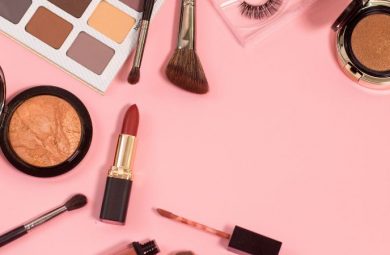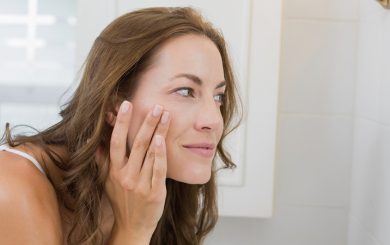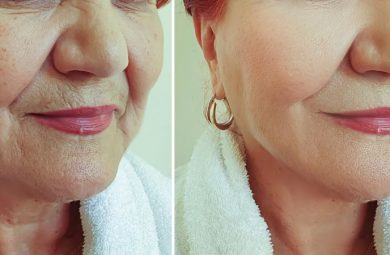It should go without say: skincare is important and having a routine is vital. Taking care of your skin is not just about removing makeup at the end of the day; it’s also about ensuring that your skin is in the best condition in the short-term and long-term. As we go through life, our skin changes, so taking care of it should always be a priority. Plus, our skin is our biggest organ and it needs to be taken care of.
Whether you’re a beginner who wants to take better care of your skin, or you’re a skincare enthusiast who’s looking to take your skills and knowledge to the next level, here are skin care tips to help you out and give your skin a boost.
Know Your Skin Type
Before we start talking about skincare tips, we need to address some other items. There are different types of skin, and a skincare product that might work for you might not work for someone else. This is why it’s best to do your research to find the right skincare products for your skin type, and to establish the correct skincare routine for your personal needs.
Here are the different skin types to understand.
Normal Skin
Normal skin is usually blemish-free, supple, soft and fine-pored. Normal skin tends to have a rosy, clear and glowing complexion, but like other skin types, it still requires some TLC.
Combination Skin
Combination skin is a combination of normal, dry and oily skin. People who have combination skin tend to have normal to dry skin around the cheeks and chin, and oily and blemish-prone skin on the forehead.
Dry Skin
Dry skin tends to be dry, itchy and flaky. This means that it requires more moisture and nourishment in comparison to other skin types. Dry skin can also be triggered by environmental factors, so it’s important to protect the skin with ‘skin shielding’ products.
Blemished Skin
Blemished skin is prone to breakouts, such as blackheads, spots and acne. This is because it tends to produce more sebum than necessary. Blemished skin is also sensitive so those with this skin type need to use products with gentle ingredients.
Sensitive Skin
Sensitive skin is very delicate so it requires gentle handling, otherwise it can become dry, red, itchy and full of blemishes. Those with sensitive skin should use skincare products with gentle, natural and organic ingredients to help protect and boost it.
Mature Skin
As we get older, it’s inevitable that our skin will change. That’s because starting in our mid-twenties natural collagen production decreases, which means your skin will lose its elasticity and become more prone to dryness, fine lines, wrinkles and pigment spots. To manage mature skin, or before you start to develop mature skin, you should use anti-aging products, sunscreen (UV radiation damages and ages the skin), and moisturize daily (shea butter is really good for this).
Related Search Topics (Ads)
Related Products
Determining Your Skin Type
To figure out what skin type you have, you need to follow these steps:
- Start off by removing your makeup.
- Thoroughly cleanse your face using a gentle face cleanser and warm water, then pat your face dry.
- Leave your face for an hour. Don’t apply any products, and don’t touch your face.
- The next step is to examine your skin. Dab your face with a tissue. Dab the t-zone first. If oil rubs off then this means that you have oily or combination skin. If your face is red then it’s sensitive.
- Feel your skin. Do you feel anything at all? If your skin feels tight then that means you have dry skin. If it’s cleaner than before then you have oily or combination skin. If it feels itchy or sore then it is sensitive. By the way, if you don’t feel or notice any of these things then you’ve got normal skin!
- Take a closer look at your face. If it’s red, it’s sensitive. If you have wrinkles, you have mature skin. If it’s shiny, you have oily and blemished skin. If it’s flaky, you have dry skin. If your t-zone is shiny but your cheeks and chin or normal or dry, then you have combination skin.
- Now take a step back and look at your skin. Can you see your pores? If your pores are big then you have oily skin. If you can see your pores but they’re small then you have normal skin. If you can’t see your pores at all then you have dry skin. If your pores are different sizes then you have combination skin.
Nine Important Skincare Tips
Regardless of your skin type, here are some general skin care tips that will work to boost your complexion.
Sun Protection
Regardless of your age, skin tone, skin type, the season or the climate you live in, you should use sun protection every day, all year round. UV rays from the sun are damaging to the skin.
Exfoliate
Impurities can clog up your pores, so make sure you exfoliate your face and get rid of the dirt. This can be a normal part of your skincare routine.
Cleanse, Tone and Moisturize
Enough said: cleanse, tone and moisturize your skin as part of your morning and evening routine. Use products that are designed for your skin type (i.e. cleanser for oily skin, moisturizer for dry skin, etc.). This is why understanding your skin type is important.
Shield Your Skin
City skin is a real thing! Environmental pollutants can damage your skin and trigger blemishes and irritation, so use products that protect your skin from this.
Less is More
Sometimes, simplicity is key. You don’t need to use a million different skincare products. Find the right products for you and your routine. If you’re trying out a new skincare product for the first time then give yourself 21–28 days to see the effects.
Stay Hydrated
Drink plenty of water, and eat a healthy diet that includes fruits, vegetables, whole grains and lean proteins. What you put in your body will have an effect on your skin.
Don’t Smoke
Smoking ages your skin and increases the presence of wrinkles. It also damages collagen production and elastin, which gives your skin strength and that youthful look.
Don’t Over-wash
Over-washing your skin can strip it of essential oils and make it dry. Gently handle your skin by using skincare products with organic ingredients and by patting it down after cleansing.
Keep Calm
Stress can trigger breakouts and make your skin more sensitive. Try activities to help you relax, evaluate the things that are causing you stress and limit those, and get plenty of sleep.







